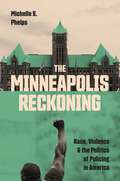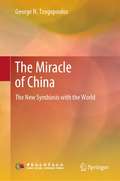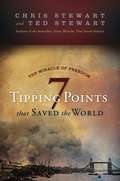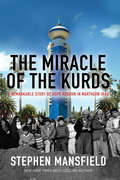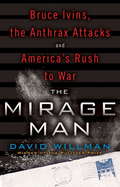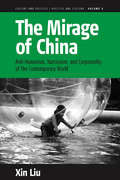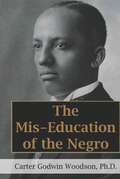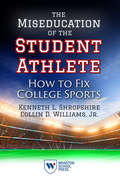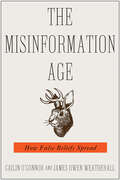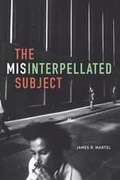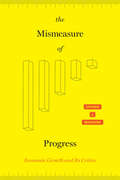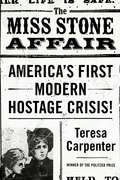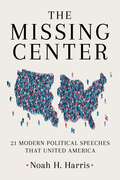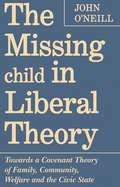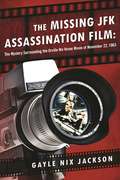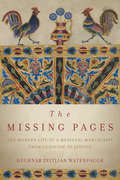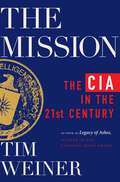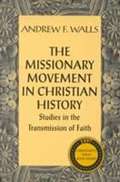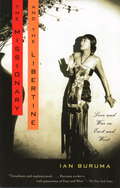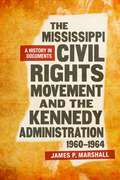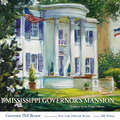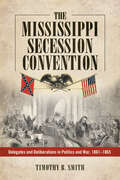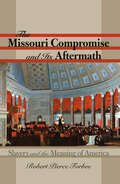- Table View
- List View
The Minneapolis Reckoning: Race, Violence, and the Politics of Policing in America
by Michelle S. PhelpsChallenges to racialized policing, from early reform efforts to BLM protests and the aftermath of George Floyd&’s murder The eruption of Black Lives Matter protests against police violence in 2014 spurred a wave of police reform. One of the places to embrace this reform was Minneapolis, Minnesota, a city long known for its liberal politics. Yet in May 2020, four of its officers murdered George Floyd. Fiery protests followed, making the city a national emblem for the failures of police reform. In response, members of the Minneapolis City Council pledged to &“end&” the Minneapolis Police Department. In The Minneapolis Reckoning, Michelle Phelps describes how Minneapolis arrived at the brink of police abolition.Phelps explains that the council&’s pledge did not come out of a single moment of rage, but decades of organizing efforts. Yet the politics of transforming policing were more complex than they first appeared. Despite public outrage over police brutality, the council&’s initiatives faced stiff opposition, including by Black community leaders who called for more police protection against crime as well as police reform. In 2021, voters ultimately rejected the ballot measure to end the department. Yet change continued on the ground, as state and federal investigations pushed police reform and city leaders and residents began to develop alternative models of safety.The Minneapolis Reckoning shows how the dualized meaning of the police—as both the promise of state protection and the threat of state violence—creates the complex politics of policing that thwart change. Phelps&’s account of the city's struggles over what constitutes real accountability, justice, and safety offers a vivid picture of the possibilities and limits of challenging police power today.
The Miracle of China: The New Symbiosis with the World
by George N. TzogopoulosThis book aims to explore China's miracle under the context of complex world full of uncertainties. The author knows China's history well which makes it possible to find clues to shape China's status quo and conduct logic behind. The book is composed of six chapters. Chapter 1 concisely narrates China's history and explores why unity has been a fundamental element in its course. Chapter 2 elaborates on the BRI. Chapter 3 discusses Sino-European relations. Chapter 4 functions as a case state that examines relations between an EU and NATO member states, Greece, with China. Chapter 5 re-contextualizes the debate about China by looking into the way interconnectedness and the skeleton of globalization permit it to weather storms in the global arena. Chapter 6 links China's development to the COVID-19 pandemic.
The Miracle of Freedom: Seven Tipping Points That Saved the World
by Chris Stewart Ted T. Stewart"How unusual is it, really, in the history of all known human experience, to enjoy the blessing of living free?" The answer may surprise you. In The Miracle of Freedom, Chris and Ted Stewart make a strong case that fewer than 5 percent of all people who have ever lived on the earth have lived under conditions that we could consider "free." So where did freedom come from, and how are we fortunate enough to experience it in our day? "A deeper look at the human record," write the authors, "reveals a series of critical events, obvious forks in the road leading to very different outcomes, that resulted in this extraordinary period in which we live." They identify and discuss seven decisive tipping points: 1. The defeat of the Assyrians in their quest to destroy the kingdom of Judah. 2. The victory of the Greeks over the Persians at Thermopylae and Salamis. 3. Roman Emperor Constantine's conversion to Christianity. 4. The defeat of the armies of Islam at Poitiers. 5. The failure of the Mongols in their effort to conquer Europe. 6. The discovery of the New World. 7. The Battle of Britain in World War II. The journey to freedom has been thousands of years long. Now that it has found its place in the world, the question for those of us who experience its benefits is simply this: Will we work to preserve the miracle of freedom that we enjoy today?
The Miracle of the Kurds: A Remarkable Story of Hope Reborn In Northern Iraq
by Stephen MansfieldThe story of one American's Quixote-like vision for Kurdistan following Saddam's barbarous attacks of the early 1990s - encouraging the Kurds to build one of the most remarkable, hopeful, and prosperous cultures in not just the Middle East but the world.
The Mirage Man
by David WillmanFor the first time, Pulitzer Prize-winning journalist David Willman tells the whole gripping story of the hunt for the anthrax killer who terrorized the country in the dark days that followed the September 11th attacks. Letters sent surreptitiously from a mailbox in New Jersey to media and political figures in New York, Florida, and Washington D.C. killed five people and infected seventeen others. For years, the case remained officially unsolved--and it consumed the FBI and became a rallying point for launching the Iraq War. Far from Baghdad, at Fort Detrick, Maryland, stood Bruce Ivins: an accomplished microbiologist at work on patenting a next-generation anthrax vaccine. Ivins, it turned out, also was a man the FBI consulted frequently to learn the science behind the attacks.The Mirage Man reveals how this seemingly harmless if eccentric scientist hid a sinister secret life from his closest associates and family, and how the trail of genetic and circumstantial evidence led inexorably to him. Along the way, Willman exposes the faulty investigative work that led to the public smearing of the wrong man, Steven Hatfill, a scientist specializing in biowarfare preparedness whose life was upended by media stakeouts and op-ed-page witch hunts. Engrossing and unsparing, The Mirage Man is a portrait of a deeply troubled scientist who for more than twenty years had unlimited access to the U.S. Army's stocks of deadly anthrax. It is also the story of a struggle for control within the FBI investigation, the missteps of an overzealous press, and how a cadre of government officials disregarded scientific data while spinning the letter attacks into a basis for war. As The Mirage Man makes clear, America must, at last, come to terms with the lessons to be learned from what Bruce Ivins wrought. The nation's security depends on it.From the Hardcover edition.ith the lessons to be learned from what Bruce Ivins wrought. The nation's security depends on it.From the Hardcover edition.
The Mirage Of China
by Xin LiuToday's world is one marked by the signs of digital capitalism and global capitalist expansion, and China is increasingly being integrated into this global system of production and consumption. As a result, China's immediate material impact is now felt almost everywhere in the world; however, the significance and process of this integration is far from understood. This study shows how the a priori categories of statistical reasoning came to be re-born and re-lived in the People's Republic - as essential conditions for the possibility of a new mode of knowledge and governance. From the ruins of the Maoist revolution China has risen through a mode of quantitative self-objectification. As the author argues, an epistemological rift has separated the Maoist years from the present age of the People's Republic, which appears on the global stage as a mirage. This study is an ethnographic investigation of concepts - of the conceptual forces that have produced and been produced by - two forms of knowledge, life, and governance. As the author shows, the world of China, contrary to the common view, is not the Chinese world; it is a symptomatic moment of our world at the present time.
The Mirrors of Washington
by Clinton W. Gilbert John KirbyThis classic text features audacious disclosures concerning fourteen American political leaders in Washington.
The Mis-Education of the Negro
by Carter Godwin WoodsonCarter Godwin Woodson's classic and historic work that exposes how American education has been structured to perpetuate racial segregation, as well as disparate impacts in the black community. A foundational book, Woodson's insights continue to have value today.
The Miseducation of the Student Athlete: How to Fix College Sports
by Kenneth L. Shropshire Collin D. Williams Jr.The student-athlete’s life: practice, gym, weight room, film review, repeat. Simply put, sports come first. Academics is a distant second. As the revenues generated by big-time college sports continue to skyrocket, virtually all of the debate involves whether (and how much) student-athletes should be paid for play. Kenneth L. Shropshire and Collin D. Williams, Jr., argue that ”student” has to come first in student-athlete: the focus should be on prioritizing a meaningful education.In The Miseducation of the Student Athlete: How to Fix College Sports, Shropshire and Williams draw on new research to reveal that it has become increasingly difficult for college athletes to balance school and sports, much less a social life, leading to serious economic, professional, and emotional consequences for young people. Given that fewer than 2% of all college men’s basketball and football players will play at the professional level, the other 98% of student-athletes must be prepared to find and perform well in jobs outside of their respective field of play.In this bold call to action, Shropshire and Williams explain how we got here and what can be done about it. They lay out The Student-Athlete Manifesto, a roadmap to increase the likelihood that student-athletes can succeed both on and off the field. They also offer a Meaningful Degree Model, which ensures education pays for everyone, along with stories of success that show it is possible to be both a student and an athlete.A critical read for student-athletes, sports leadership, policy makers, and anyone who loves college sports, The Miseducation of the Student Athlete has the potential to disrupt college sport and create lasting change.
The Misinformation Age: How False Beliefs Spread
by James Owen Weatherall Cailin O'Connor“Empowering and thoroughly researched, this book offers useful contemporary analysis and possible solutions to one of the greatest threats to democracy.” —Kirkus ReviewsEditors’ choice, The New York Times Book ReviewRecommended reading, Scientific AmericanWhy should we care about having true beliefs? And why do demonstrably false beliefs persist and spread despite bad, even fatal, consequences for the people who hold them?Philosophers of science Cailin O’Connor and James Weatherall argue that social factors, rather than individual psychology, are what’s essential to understanding the spread and persistence of false beliefs. It might seem that there’s an obvious reason that true beliefs matter: false beliefs will hurt you. But if that’s right, then why is it (apparently) irrelevant to many people whether they believe true things or not?The Misinformation Age, written for a political era riven by “fake news,” “alternative facts,” and disputes over the validity of everything from climate change to the size of inauguration crowds, shows convincingly that what you believe depends on who you know. If social forces explain the persistence of false belief, we must understand how those forces work in order to fight misinformation effectively.“[The authors] deftly apply sociological models to examine how misinformation spreads among people and how scientific results get misrepresented in the public sphere.” —Andrea Gawrylewski, Scientific American“A notable new volume . . . The Misinformation Age explains systematically how facts are determined and changed—whether it is concerning the effects of vaccination on children or the Russian attack on the integrity of the electoral process.” —Roger I. Abrams, New York Journal of Books
The Misinterpellated Subject
by James R. MartelAlthough Haitian revolutionaries were not the intended audience for the Declaration of the Rights of Man, they heeded its call, demanding rights that were not meant for them. This failure of the French state to address only its desired subjects is an example of the phenomenon James R. Martel labels "misinterpellation." Complicating Althusser's famous theory, Martel explores the ways that such failures hold the potential for radical and anarchist action. In addition to the Haitian Revolution, Martel shows how the revolutionary responses by activists and anticolonial leaders to Woodrow Wilson's Fourteen Points speech and the Arab Spring sprang from misinterpellation. He also takes up misinterpellated subjects in philosophy, film, literature, and nonfiction, analyzing works by Nietzsche, Kafka, Woolf, Fanon, Ellison, Ta-Nehisi Coates, and others to demonstrate how characters who exist on the margins offer a generally unrecognized anarchist form of power and resistance. Timely and broad in scope, The Misinterpellated Subject reveals how calls by authority are inherently vulnerable to radical possibilities, thereby suggesting that all people at all times are filled with revolutionary potential.
The Mismeasure of Progress: Economic Growth and Its Critics
by Stephen J. MacekuraFew ideas in the past century have had wider financial, political, and governmental impact than that of economic growth. The common belief that endless economic growth, as measured by Gross Domestic Product, is not only possible but actually essential for the flourishing of civilization remains a powerful policy goal and aspiration for many. In The Mismeasure of Progress, Stephen J. Macekura exposes a historical road not taken, illuminating the stories of the activists, intellectuals, and other leaders who long argued that GDP growth was not all it was cracked up to be. Beginning with the rise of the growth paradigm in the 1940s and 1950s and continuing through the present day, The Mismeasure of Progress is the first book on the myriad thinkers who argued against growth and the conventional way progress had been measured and defined. For growth critics, questioning the meaning and measurement of growth was a necessary first step to creating a more just, equal, and sustainable world. These critics argued that focusing on growth alone would not resolve social, political, and environmental problems, and they put forth alternate methods for defining and measuring human progress. In today’s global political scene—marked by vast inequalities of power and wealth and made even more fraught by a global climate emergency—the ideas presented by these earlier critics of growth resonate more loudly than ever. Economic growth appealed to many political leaders because it allowed them to avoid addressing political trade-offs and class conflict. It sustained the fiction that humans are somehow separate from nonhuman “nature,” ignoring the intimate and dense connections between the two. In order to create a truly just and equitable society, Macekura argues, we need a clear understanding of our collective needs beyond growth and more holistic definitions of progress that transcend economic metrics like GDP.
The Miss Stone Affair: America's First Modern Hostage Crisis
by Teresa CarpenterA Simon & Schuster eBook. Simon & Schuster has a great book for every reader.
The Missing Center: 21 Modern Political Speeches That United America
by Noah H. Harris21 Defining Political Speeches From Presidents and Political Figures That United America in Uncertain TimesThe Missing Center is a message from the younger generation, and reminds us that shared aspirations and goals have solved America's greatest challenges and are at the heart of our greatest accomplishments to come. In American politics today there is a critical problem: partisanship. While a two-party political system has been a hallmark of the American government since the founding of our democracy, the extreme partisan politics in the 21st century is new. In a quest to find a path forward, The Missing Center showcases the transformative results that can happen when leaders govern from the center to unite, inspire and solve complex problems. We do not need to go back to the days of the Founding Fathers and only have to look at the recent past to find ideas that put the American people first. By examining speeches from presidents and leaders of both parties, we see how governing from the middle is the model that yields the best outcomes. With defining political speeches from across the aisle, from notable presidents and politicians alike, The Missing Center sheds light on how governing from the center and coming to compromise is the most effective pathway forward. In addition to commentary and context by the author, this important book includes speeches by leaders across the aisle, including: Joe BidenDonald TrumpBarack ObamaGeorge W. BushHillary ClintonElizabeth WarrenAnd More The author, Noah Harris, currently age sixteen, served as an intern for two years in the United States House of Representatives. At his age, this experience creates unique insight into the issues of the day, including how government is viewed by the next generation of voters and how to create a better future.
The Missing Child in Liberal Theory: Towards a Covenant Theory of Family, Community, Welfare and the Civic State (The Royal Society of Canada Special Publications)
by John O'NeillThe Missing Child in Liberal Theory opens public discourse on what it is Canadians hold in common through their provision of civic assurances to children and families at risk. John O'Neill presents a strongly-worded critique of the dominant discourse of the market society. He observes the link between 'duty free' capitalism and minimal civic obligations. This book calls for a covenant society where civility and reciprocity are underwritten by a second generation concept of the Canadian welfare state that will not abandon children to disastrous prospects in a market society.Confronting the current call for a leaner and meaner response to global competitiveness, O'Neill challenges concepts of liberalism and communitarianism. In their place he proposes a covenant concept of state, community, and family assurances to derive from our common provision of a civic endowment that we undertake to sustain now and for future generations of Canadians.O'Neill argues that if Canada is to survive as a national community capable of responding to the global market, we must reaffirm the civic foundations of the state. If we fail to do this, we will not have a leaner society, only a meaner one. This society will be hostile to capitalism and socialism alike. If we can rededicate the Canadian commons to the well-being of the civic person, Canada will contribute a model of survival and governance among the nations of the twenty-first century.
The Missing JFK Assassination Film: The Mystery Surrounding the Orville Nix Home Movie of November 22, 1963
by Gayle Nix JacksonA granddaughter’s quest for answers sheds new light on one of history’s most enduring questions: Was there a conspiracy to kill President John F. Kennedy? Abraham Zapruder’s film gets all the attention, but there was another eyewitness to history whose tale has yet to be told. In this eye-opening account, Gayle Nix Jackson tells the story of her grandfather, Orville Nix, a man with a camera who happened to be on the ground for a life-changing—world-changing, and in some ways world-ending—event: the murder of President Kennedy in Dallas in 1963. The Missing JFK Assassination Film is not the typical JFK assassination book. This book does not attempt to answer the question of who killed John F. Kennedy; instead, it addresses why we should question the actions of those involved and why the truth was withheld from the people. Though copies of Orville’s film exist, the original film is missing. Why? The FBI confiscated the photographer’s camera for several months, then returned it in pieces. Were these actions sinister or were they just examples of governmental incompetence? The Missing JFK Assassination Film exposes information about the House Select Committee staff’s involvement in the missing film. The author’s interviews with people who were close to Orville shed light on the government’s involvement with the filmmaker. And her memories of growing up with her beloved grandfather—and on how his views changed after that fateful day—fuel a quest Jackson is still on to find the film.
The Missing Pages: The Modern Life of a Medieval Manuscript, from Genocide to Justice
by Heghnar Zeitlian WatenpaughIn 2010, the world's wealthiest art institution, the J. Paul Getty Museum, found itself confronted by a century-old genocide. The Armenian Church was suing for the return of eight pages from the Zeytun Gospels, a manuscript illuminated by the greatest medieval Armenian artist, Toros Roslin. Protected for centuries in a remote church, the holy manuscript had followed the waves of displaced people exterminated during the Armenian genocide. Passed from hand to hand, caught in the confusion and brutality of the First World War, it was cleaved in two. Decades later, the manuscript found its way to the Republic of Armenia, while its missing eight pages came to the Getty. The Missing Pages is the biography of a manuscript that is at once art, sacred object, and cultural heritage. Its tale mirrors the story of its scattered community as Armenians have struggled to redefine themselves after genocide and in the absence of a homeland. Heghnar Zeitlian Watenpaugh follows in the manuscript's footsteps through seven centuries, from medieval Armenia to the killing fields of 1915 Anatolia, the refugee camps of Aleppo, Ellis Island, and Soviet Armenia, and ultimately to a Los Angeles courtroom. Reconstructing the path of the pages, Watenpaugh uncovers the rich tapestry of an extraordinary artwork and the people touched by it. At once a story of genocide and survival, of unimaginable loss and resilience, The Missing Pages captures the human costs of war and persuasively makes the case for a human right to art.
The Mission: The CIA in the 21st Century
by Tim WeinerNew York Times Bestseller * A New Yorker Best Book of 2025 * A New York Times Editors' Choice "No one has opened up the CIA to us like Weiner has, and The Mission deserves to win Weiner a second Pulitzer." —The GuardianA masterpiece of reporting based on-the-record interviews with six former CIA directors and scores of spies, station chiefs, and top operations officers: The Mission is a gripping and revelatory history of the modern CIA, reaching from 9/11 through its covert operations in Afghanistan and Iraq to today’s secret battles with Russia and China, concluding with the Agency's own fight for survival under the current president of the United States Tim Weiner's epic successor to Legacy of Ashes, his National Book Award–winning classic about the CIA's first sixty yearsAt the turn of the century, the Central Intelligence Agency was in crisis. The end of the Cold War had robbed the agency of its mission. More than thirty overseas stations and bases had been shuttered, and scores that remained had been severely cut back. Many countries where surveillance was once deemed crucial went uncovered. Essential intelligence wasn’t being collected. At the dawn of the information age, the CIA’s officers and analysts worked with outmoded technology, struggling to distinguish the clear signals of significant facts from the cacophony of background noise.Then came September 11th, 2001. After the attacks, the CIA transformed itself into a lethal paramilitary force, running secret prisons and brutal interrogations, mounting deadly drone attacks, and all but abandoning its core missions of espionage and counterespionage. The consequences were grave: the deaths of scores of its recruited foreign agents, the theft of its personnel files by Chinese spies, the penetration of its computer networks by Russian intelligence and American hackers, and the tragedies of Afghanistan and Iraq. A new generation of spies now must fight the hardest targets—Moscow, Beijing, Tehran—while confronting a president who has attacked the CIA as a subversive force. From Pulitzer Prize winner Tim Weiner, The Mission tells the gripping, high-stakes story of the CIA through the first quarter of the twenty-first century, revealing how the agency fought to rebuild the espionage powers it lost during the war on terror—and finally succeeded in penetrating the Kremlin. The struggle has life-and-death consequences for America and its allies. The CIA must reclaim its original mission: know thy enemies. The fate of the free world hangs in the balance. A masterpiece of reporting, The Mission includes exclusive on-the-record interviews with six former CIA directors, the top spymaster, thirteen station chiefs, and scores of top operations officers who served undercover for decades and have never spoken to a journalist before.
The Mission: Waging War and Keeping Peace With America's Military
by Dana PriestCritical of our statesmanship.
The Missionary Movement in Christian History: Studies in the Transmission of Faith
by Andrew F. WallsThis book brings together lectures and articles by the renowned historian of world Christianity, making them available, many for the first time, to scholars and students of world mission. While examining the many aspects that have characterized mission, indigenous Christianity, and colonialism in modern Africa, The Missionary Movement in Christian History has a far broader reach. Essays such as "The Gospel as the Prisoner and Liberator of Culture" reveal the paradoxes of the Christian movement as a whole in discussing how different primitive Mediterranean Christianity is from early Catholicism, from Celtic monasticism, from Reformation Protestantism, and from Nigerian Spirit Christianity. Andrew Walls shows how the central question for Christianity has always been one of identity in many different forms, a phenomenon revealed at each stage of its history by the missionary movement. What this means for theology, however, has hardly been explored. This is the subtext of Walls' work, providing extraordinary insights and successful counters to secular critiques of world Christianity.
The Missionary and the Libertine
by Ian BurumaFrom Naipaul's India to the last days of Hong Kong, and from the ghosts of Pearl Harbor to Benazir Bhutto, Buruma delivers an engaging and incisive look at the ways East and West understand-and misunderstand-each other. At home in both worlds, Buruma traverses the realms of journalism, literary criticism, and political analysis, to examine the dialogue of fact and fantasy that affects our perception of far-away lands. Whether deconstructing the films of Satyajit Ray or the novels of Yoshimoto Banana, Buruma offers a splendid counterbalance to fashionable theories of clashing civilizations and uniquely Asian values. In twenty-five illuminating, often humorous essays, The Missionary and the Libertine shows us why Buruma's reputation for writing the most compelling commentary on the faultlines of the East-West divide is so secure.
The Mississippi Civil Rights Movement and the Kennedy Administration, 1960-1964: A History in Documents
by James P. MarshallIn the early 1960s, civil rights activists and the Kennedy administration engaged in parallel, though not always complementary, efforts to overcome Mississippi’s extreme opposition to racial desegregation. In The Mississippi Civil Rights Movement and the Kennedy Administration, 1960–1964, James P. Marshall uncovers this history through primary source documents that explore the legal and political strategies of the federal government, follows the administration’s changing and sometimes contentious relationship with civil rights organizations, and reveals the tactics used by local and state entities in Mississippi to stem the advancement of racial equality.A historian and longtime civil rights activist, Marshall collects a vast array of documents from the John F. Kennedy Presidential Library and excerpts from his own 1960s interviews with leading figures in the movement for racial justice. This volume tracks early forms of resistance to racial parity adopted by the White Citizens’ Councils and chapters of the Ku Klux Klan at the local level as well as by Mississippi congressmen and other elected officials who used both legal obstructionism and extra-legal actions to block efforts meant to promote integration. Quoting from interviews and correspondence among the Student Nonviolent Coordinating Committee members, government officials, and other constituents of the Democratic Party, Marshall also explores decisions about voter registration drives and freedom rides as well as formal efforts by the Kennedy administration—including everything from minority hiring initiatives to federal litigation and party platform changes—to exert pressure on Mississippi to end segregation.Through a carefully curated selection of letters, interviews, government records, and legal documents, The Mississippi Civil Rights Movement and the Kennedy Administration, 1960–1964 sheds new light on the struggle to advance racial justice for African Americans living in the Magnolia State.
The Mississippi Governor's Mansion: Memories of the People's Home
by Phil BryantWelcoming its first executive in 1842, the Mississippi Governor’s Mansion is the second-oldest continuously occupied governor’s residence in the United States. The Mansion is both a public building open for tours and the private residence of the governor and his family. In this unique book, readers are invited to explore the entirety of the building, from the attic to the garage and everything in between. The Mississippi Governor’s Mansion: Memories of the People’s Home is the first book of its kind dedicated to images and stories about the Governor’s Mansion. The volume reveals Governor Phil Bryant’s profound respect for the office he holds and his deep appreciation for the National Historic Landmark in which he resides. Through his personal, often touching reflections, Governor Bryant pays tribute to former governors, their families, and the many public servants who have dedicated their lives to taking care of this beautiful Greek Revival masterpiece. More than sixty elegant watercolor paintings by noted Mississippi artist Bill Wilson accompany the governor’s stories. Wilson captures the beauty and majesty of the home, its furnishings, and the restored historic grounds. The volume also features a personal foreword by First Lady Deborah Bryant inviting readers into her home, an artist’s statement by Wilson, and a brief historical essay written by Mansion curator Megan Bankston.
The Mississippi Secession Convention: Delegates and Deliberations in Politics and War, 1861-1865
by Timothy B. SmithThe Mississippi Secession Convention is the first full treatment of any secession convention to date. Studying the Mississippi convention of 1861 offers insight into how and why southern states seceded and the effects of such a breech. Based largely on primary sources, this book provides a unique insight into the broader secession movement.There was more to the secession convention than the mere act of leaving the Union, which was done only three days into the deliberations. The rest of the three-week January 1861 meeting as well as an additional week in March saw the delegates debate and pass a number of important ordinances that for a time governed the state. As seen through the eyes of the delegates themselves, with rich research into each member, this book provides a compelling overview of the entire proceeding.The effects of the convention gain the most analysis in this study, including the political processes that, after the momentous vote, morphed into unlikely alliances. Those on opposite ends of the secession question quickly formed new political allegiances in a predominantly Confederate-minded convention. These new political factions formed largely over the issues of central versus local authority, which quickly played into Confederate versus state issues during the Civil War. In addition, author Timothy B. Smith considers the lasting consequences of defeat, looking into the effect secession and war had on the delegates themselves and, by extension, their state, Mississippi.
The Missouri Compromise and Its Aftermath
by Robert Pierce ForbesRobert Pierce Forbes goes behind the scenes of the crucial Missouri Compromise, the most important sectional crisis before the Civil War, to reveal the high-level deal-making, diplomacy, and deception that defused the crisis, including the central, unexpected role of President James Monroe. Although Missouri was allowed to join the union with slavery, the compromise in fact closed off nearly all remaining federal territories to slavery. When Congressman James Tallmadge of New York proposed barring slavery from the new state of Missouri, he sparked the most candid discussion of slavery ever held in Congress. The southern response quenched the surge of nationalism and confidence following the War of 1812 and inaugurated a new politics of racism and reaction. The South's rigidity on slavery made it an alluring electoral target for master political strategist Martin Van Buren, who emerged as the key architect of a new Democratic Party explicitly designed to mobilize southern unity and neutralize antislavery sentiment. Forbes's analysis reveals a surprising national consensus against slavery a generation before the Civil War, which was fractured by the controversy over Missouri.Robert Pierce Forbes goes behind the scenes of the crucial Missouri Compromise, the most important sectional crisis before the Civil War, to reveal the high-level deal-making, diplomacy, and deception that defused the crisis, including the central, unexpected role of President James Monroe. Although Missouri was allowed to join the union as a slave state, Forbes observes, the compromise in fact closed off nearly all remaining federal territory to slavery. Forbes's analysis reveals a surprising national consensus against slavery a generation before the Civil War, which was fractured by the controversy over Missouri.-->
